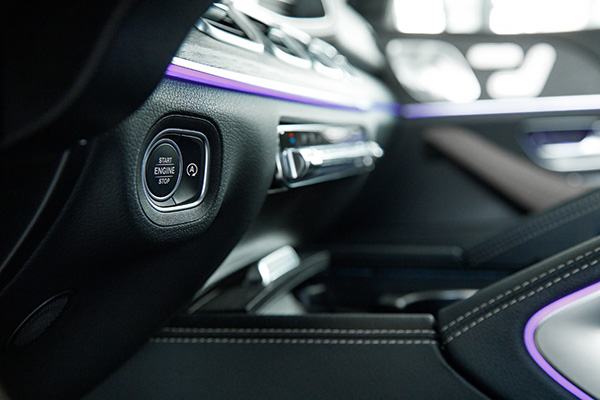
You may have noticed your car engine shutting off and restarting at traffic lights, leaving you wondering if this frequent starting and stopping is harming your car's battery. The engine auto-start-stop system, designed to improve fuel efficiency and reduce emissions, often raises concerns among car owners about its impact on battery life. We'll explain the technology to understand its effects on your vehicle's battery.
What Is the Auto-Start-Stop Technology
Auto-start-stop technology is a system that automatically shuts off the engine when the vehicle comes to a halt and restarts it when you press the accelerator. This system is particularly beneficial in reducing fuel consumption and emissions during idle periods, such as waiting at traffic lights or in heavy traffic. But how does it work without damaging the car's battery?
How Auto-Start-Stop Systems Work
The key components of an auto-start-stop system include advanced sensors, a high-durability starter motor, and an enhanced battery. These components work together to ensure seamless engine restarts. Here's a closer look at how they operate:
Sensors
These detect when the vehicle is stationary and when the driver intends to move again. They also monitor battery health, engine temperature, and other critical parameters.
Starter Motor
Unlike conventional starter motors, the one used in auto-start-stop systems is designed for frequent use, ensuring it can handle numerous start-stop cycles without excessive wear.
Enhanced Battery
The battery in these systems is more robust and designed to endure repeated discharge and recharge cycles. It typically has a higher capacity and faster recharge rate compared to standard car batteries.
Impact on Battery Life
A common concern among drivers is whether the frequent stopping and starting imposed by auto-start-stop systems negatively affects battery life. While it's true that traditional car batteries would wear out quickly under such conditions, auto-start-stop systems use advanced batteries designed to cope with the increased demand. Here's why these batteries are more resilient:
- High Capacity: Auto-start-stop batteries have a greater capacity to handle frequent starts and stops without significant degradation.
- Enhanced Design: These batteries are built with materials and technology that allow for more cycles of discharging and recharging.
- Efficient Management Systems: The vehicle's electronic control unit (ECU) manages the battery usage efficiently, ensuring that the battery is only used when it's fully capable of handling the load.
Manufacturer Considerations
Automakers are aware of the concerns regarding battery life and have invested in developing batteries that can withstand the demands of auto-start-stop systems. Many modern vehicles come equipped with absorbent glass mat (AGM) or enhanced flooded batteries (EFB), which are specifically designed for this purpose. These batteries are more durable and have a longer lifespan compared to traditional lead-acid batteries.
Maintenance and Replacement Costs
While auto-start-stop batteries are more durable, they can also be more expensive to replace. The good news is that their enhanced durability often offsets the higher initial cost by providing a longer service life. Regular maintenance, such as checking the battery's health and ensuring it's properly charged, can further extend its lifespan.
Ensure your vehicle's auto-start-stop system is in top shape. Contact Complete Automotive Repair Specialists for professional battery care and replacement services.